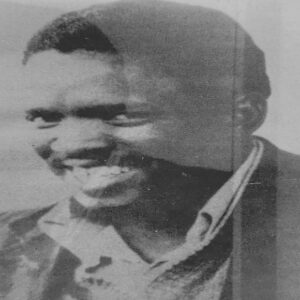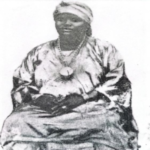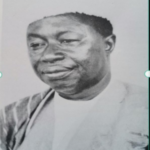
Steven Bantu Biko (1946 – September 12, 1977) was one of the founders of all-black South African Students’ Association (SASA) and a leading force in the Black Consciousness movement in South Africa. His brutal death while he was held in detention by South African security forces provoked an international outcry over the government’s treatment of political detainees.
Steve Biko was born in 1946 in King William’s Town in the Eastern Cape. His father was a government clerk and his mother was a domestic worker. His political activism began in 1963 when, at the age of 16, he was expelled from Lovedale High School shortly after authorities questioned him about his older brother who had been jailed as a suspected poqo (Xhosa for “alone”) activist.
(Poqo, an offshoot of the Pan Africanist Congress, advocated indiscriminate killing of whites.) Biko resumed his education at St. Francis College at Marian Hall, a liberal Catholic boarding school, from which he graduated in 1966. In 1966 he enrolled at the University of Natal Black (UNB) medical school (Wentworth) and remained there until 1972 when he was expelled for “inadequate medical performance”. During his time on campus. Biko had devoted more and more attention to black political causes and let his studies slide.
As a participant in the liberal multiracial National Union of South African Students (NUSAS), Biko soon recognized that black activist students had to become independent of white-dominated organizations and form their own institutions. In 1968 Biko resigned from NUSAS to form the South African Students’ Association (SASA), becoming its first president.
SASA was centered on Black Consciousness, a philosophy embracing as black all those who suffered from racial oppression. Consequently, SASA chapters spread to colored, black and Indian universities and by 1972 its Newsletter had a circulation of 4,000.
Black consciousness, defined as “group pride and determination by the Blacks to rise and attain the envisaged self”, spread from the campuses to communities across the country. By 1973, the Black Peoples Convention (BPC), the adult wing of the movement, had 41 branches.
Biko worked with the BPC in Durban until he was restricted, under the Suppression of Communism Act, to King William’s Town in 1973. Following illegal rallies in 1974 held by SASA and BPC, hundreds of demonstrators were detained and arrested. Biko testified at the trial of nine of leaders and at that time publicly articulated the concept of Black Consciousness. Following the June 1976 riots in Soweto, a group of townships southwest of Johannesburg, all Black Consciousness organizations were suppressed by government restrictions. Biko was arrested on August 18, 1977, and detained without trial at security police headquarters in Port Elizabeth. Suffering form a head injury, he was transported to Pretoria where he died the next day, on September 12.
Justice Minister James Kruger reported that Biko died while on a hunger strike, but an official autopsy showed that brain damage caused his death. At an open inquest, spectators heard evidence that Biko had spent most of his 26 days in detention lying naked and chained on the floor of his cell. The judge ruled that the security officials were no responsible for his death. Biko became the 41st person to die in police custody while detained under security legislation.
Biko’s life spanned two major confrontations the Sharpeville Massacre in 1960, when he was 14 years old, and the Soweto riots which occurred in 1976, toward the end of his life. Out of his experience he challenged traditional political structures and advocated a new stage of self-reliant black politics.


